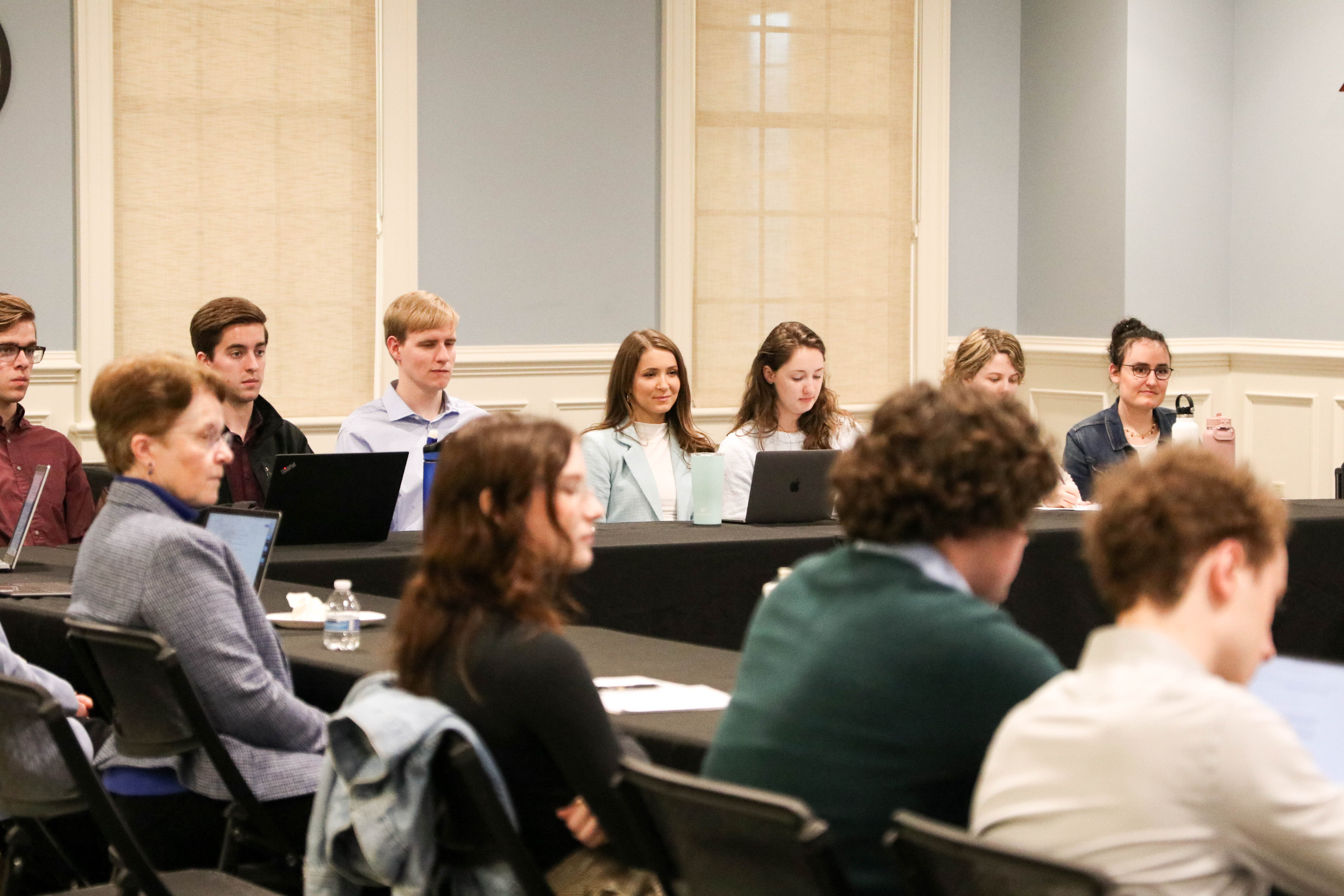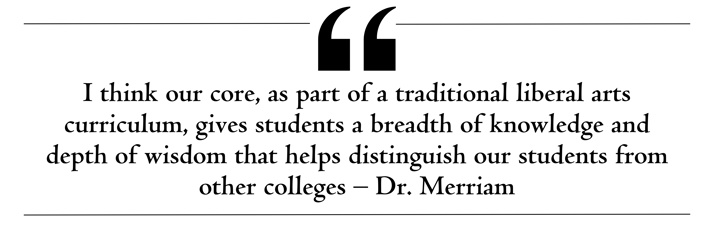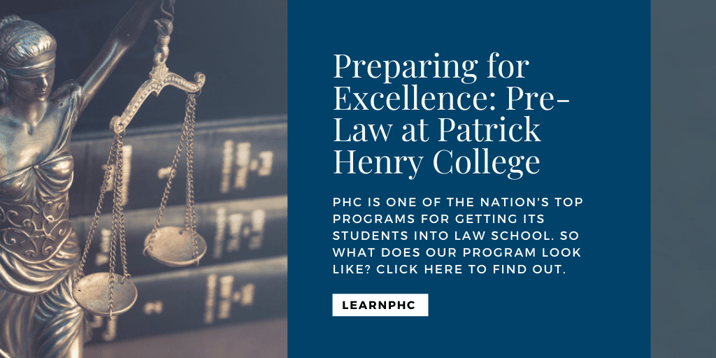.gif?width=714&height=599&name=NEW%20blog%20banner%20(37).gif)
Patrick Henry College is uniquely successful in preparing students for careers in law. Not only does its rigorous education pave the way for students to tackle heavy course loads in law school, but it also trains students to think critically and creatively about American politics and law. “I think our Core, as part of a traditional liberal arts curriculum, gives students a breadth of knowledge and depth of wisdom that helps distinguish our students from other colleges,” said PHC’s pre-law advisor and associate professor of government, Dr. Jesse Merriam.
Here are three important ways that PHC prepares its students for successful careers in law:
1. The Pre-Law and Federalist Societies
PHC offers two student-run legal organizations for students interested in exploring law school and legal career options. First, PHC is one of a handful of undergraduate institutions to have a Federalist Society chapter. The chapter's goal is to work with national Federalist Society leadership in bringing various “speakers to campus to share about their careers, what it's like in law school, and about different areas of law,” Federalist Society President senior Aileen Haggerty said. Second, PHC has a student-run Pre-Law Society, which provides a forum for legally oriented students to connect and network with alumni and legal professionals in the area. Recent events include a discussion panel with successful alumni women attorneys, a discussion between Dr. Merriam and Keith Zimmerman (a PHC alumnus and a current student at Chicago Law), and an in-depth debate between Dr. Merriam and Professor David Bernstein of George Mason University's law school on the state of affirmative action after the Supreme Court's landmark SFFA ruling.
The PHC Pre-Law and Federalist Societies “help students in various ways, such as in connecting with other students interested in law school, networking with practicing lawyers, and learning about the practice and study of law,” Dr. Merriam said. Students can benefit from connecting with PHC alumni who have walked through the same process of applying to law school and developing their careers.

“The school’s alumni network has also grown significantly since I was a student, and it has many more lawyers in many more types of legal jobs,” current practicing attorney and PHC alumna Elizabeth Ertle said. “Particularly given that PHC’s alumni network is eager to help current students, they are one of the best resources to get a sense for the opportunities and responsibilities that lawyers have in their daily lives.”
Through its various events, networking opportunities, and community engagement, the Pre-Law and Federalist Societies prepare PHC students for applying to law school and practicing law. “Both have been great for gaining leadership experience, exposure to law-related subjects, and also a greater understanding of what it could be like to practice law,” Haggerty said.
2. A Program that Connects Formal Logic and Law
Logic and Law, a class designed by Dr. Merriam, may make PHC “the only college in the country that has a course dedicated to the relationship between formal logic and law," Dr. Merriam observed. This course has become a bedrock in LSAT preparation for the school’s pre-law students. “The class prepares students for the LSAT by focusing on logical concepts that are central to the LSAT,” Dr. Merriam said. “We often begin class with about ten LSAT problems, so that over the semester, we do about 200 problems together as a group, amounting to about two full exams.”
Ertle, who attended the University of Chicago after her undergraduate, noted two specific courses at PHC that she found most helpful: American Political Institutions and Constitutional Law. “American Political Institutions went through the structure of the judiciary, including how different courts have different roles. The class also involved getting a basic understanding of what trial practice looks like—the area in which I now practice,” Ertle said. “Constitutional Law builds on that understanding by teaching students what is involved in a different area of law: appellate practice.” The Constitutional Law course instills the basics of legal reasoning by teaching students how to read and analyze cases—the core building block of almost every law school class.

Despite all the preparation these courses offer, Ertle notes that “nothing can truly prepare you for law school (which is important to know going in!), but Patrick Henry gets as close as an undergraduate education can.” The school’s focus on developing its students’ critical thinking skills across the curriculum develops the most important skills that students will need in the law school classroom.
3. High-End Pre-Law Advising
One of the primary ways that the school’s pre-law program prepares students for their law school experience is through the initial application process. “I help students with various phases of the law school application and enrollment process,” Dr. Merriam said. Outside of the classroom, he provides help in the drafting of “personal statements, the compilation of recommendation letters, and the negotiation of scholarship awards.”
PHC also provides opportunities for hands-on experience through forensics activities like moot court and mock trial. Ertle explained that while they “help simulate some of the most 'exciting' aspects of being a lawyer, they also help model and develop the types of critical thinking and problem-solving skills that lawyers use every day.”
Both inside and outside the classroom, PHC prepares its students for successful careers in law. Part of the school’s mission is to send well-rounded, creative, Christian thinkers into the world of politics and law to make a change for the Lord.
"God called us to build up the City while we live on earth, and I think that lawyers can play an important role in that endeavor," Haggerty said.
--
Patrick Henry College exists to glorify God by challenging the status quo in higher education, lifting high both faith and reason within a rigorous academic environment; thereby preserving for posterity the ideals behind the "noble experiment in ordered liberty" that is the foundation of America.

.png?width=800&height=400&name=PHC%20(1).png)





